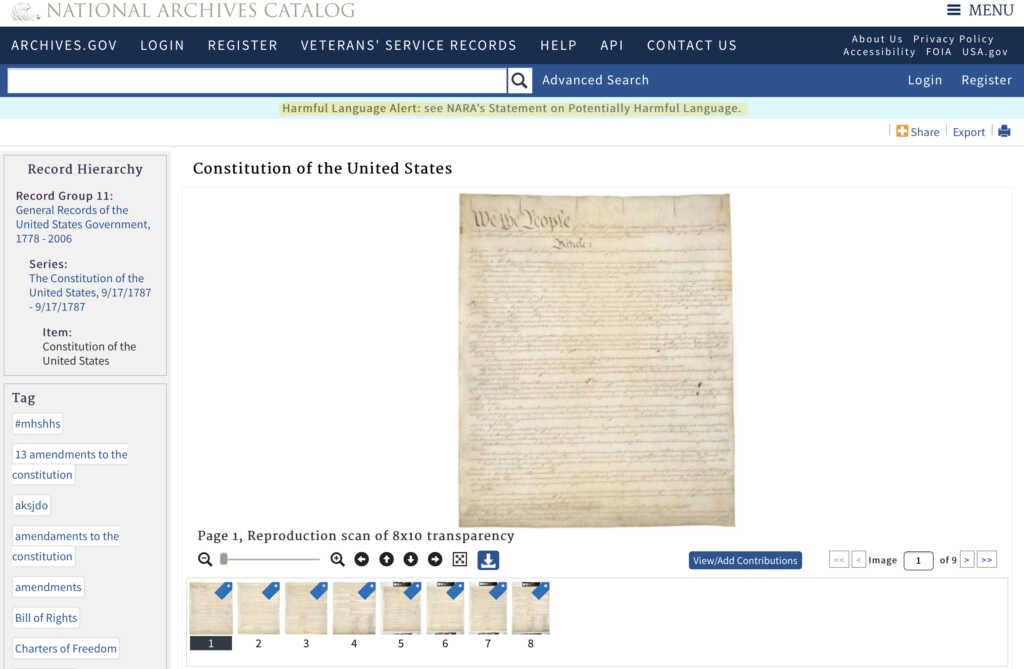
National Archives Adds 'Harmful Language Alert' to Constitution, Other Founding Documents
The National Archives Records Administration has added a “harmful language alert” to the U.S. Constitution as well as other founding documents because they “may reflect outdated, biased, offensive, and possibly violent views and opinions.”
In a statement issued this week, NARA explained the “alert” will warn readers the content they are viewing may “contain harmful language that reflects attitudes and biases of their time.”

catalog.archives.org screenshot
Established by Congress in 1934, NARA acknowledged they are required “to preserve and make available these historical records,” so, in order to make the task more bearable, it has added the “harmful language alert” at the top of its entire online catalog, linking website visitors to a lengthy “statement on potentially harmful content.”
The federal agency’s statement includes a laundry list of content readers might find “harmful or difficult” to peruse. In its warning about said content, NARA stated “some items may … reflect racist, sexist, ableist, misogynistic/misogynoir, and xenophobic opinions and attitudes; be discriminatory towards or exclude diverse views on sexuality, gender, religion, and more; include graphic content of historical events such as violent death, medical procedures, crime, wars/terrorist acts, natural disasters and more; demonstrate bias and exclusion in institutional collecting and digitization policies.”
NARA attempted to comfort those who take issue with the agency’s work to “make potentially harmful content available” by stating it is “working in conjunction with diverse communities” and “will seek to balance the preservation of this history with sensitivity to how these materials are presented to and perceived by users.”
The updated policy doesn’t come as a complete surprise, given earlier this year the federal outfit issued a report from its “task force on racism,” whose members concluded NARA’s rotunda in Washington, D.C., is an example of “structural racism” because it “lauds healthy white men in the nation’s founding while marginalizing BIPOC, women, and other communities.” The task force further condemned the “structural nature of racism that permeates all aspects of work and workplace culture at NARA.”
It also explained that so-called “reverse racism” — racism that negatively impacts white people — is “a fallacy” and “impossible, as the power structure of the United States has historically benefitted white people and continues to do so today.”
“Structural racism — the overarching system of racial bias across institutions and society — unequivocally impacts how NARA staff interact with records, colleagues, and customers,” the April report stated.
To remedy this, in part, the group recommended NARA add “trigger warnings” to founding documents and similar items to “forewarn audiences of content that may cause intense physiological and psychological symptoms for people with Post-Traumatic Stress Disorder (PTSD) and other anxiety disorders.”
***As the number of voices facing big-tech censorship continues to grow, please sign up for Faithwire’s daily newsletter and download the CBN News app, developed by our parent company, to stay up-to-date with the latest news from a distinctly Christian perspective.***




